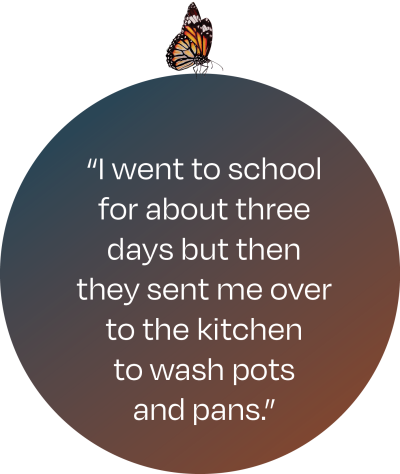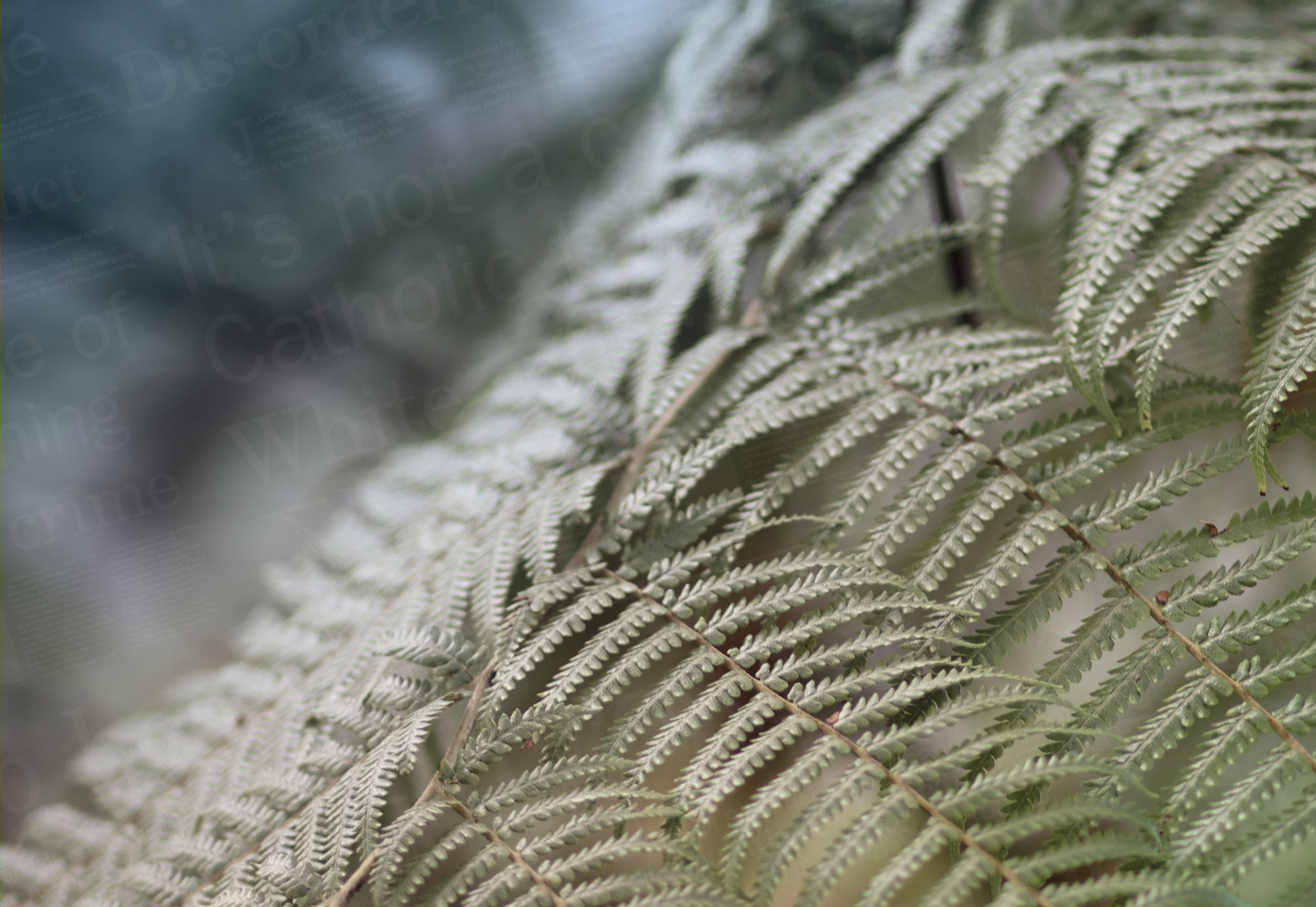Mr CB Ngā wheako o ngā purapura ora - Survivor experience:
|
Name |
Anonymised to protect identity – Mr CB[1] |
|
Age when entered care |
10 years old |
|
Age now |
71 years old |
|
Hometown |
Christchurch |
|
Time in care |
1964 to 1968 |
|
Type of care facility |
Marylands School |
|
Ethnicity |
Pākehā |
|
Whānau background |
Mr CB had one sister and one brother. His father died when he was six weeks old and Mr CB lived with his mother in a State house until she died in her early nineties. |
|
Current |
Mr CB lives in a rest home in Christchurch. His brother died from same disease Mr CB has, and was supported by his sister, who has recently passed away. |

I have an intellectual disability. I also have Neurofibromatosis, a condition that means I have lumps all over my tummy and body. I also have Barrett’s disease. It is a disease of the oesophagus.
I was constantly wagging school. I was bored because I couldn’t learn. I had some trouble with the other children, and I was picked on because of my disabilities. When I wagged, I didn’t run away, I just went home from school or went to hang out at the sawmill and played in the sawdust.
I think I was around 10 years old when I went to Marylands. I think I was sent to Marylands because I couldn’t read or write.
When I first arrived, they had a school. I went to school for about three days but then they sent me over to the kitchen to wash pots and pans. After those three days they never let me go back to school. I would get up and go to work and then go to bed and get up and go to work again. Every day. I don’t know what my mother thought was happening with me, as I was sent there to go to school.
I would get grumpy because I wasn’t allowed to play with the boys. I could never play with the boys at lunchtime when the boys were out playing. I had to be in the kitchen doing the big pile of dishes always waiting for me. I would get the strap, but I can’t remember why.
One day I was given my own room and I would get a knock on the door in the morning to get up and do the breakfast for the school and the hospital. The room was closer to the kitchen. This was so I could get up and get breakfast ready without waking anyone else up in the morning. I was the only boy helping with the kitchen.
It was not the same having my own room as I couldn’t mix with the other boys. It didn’t have a TV, but I didn’t have time to watch TV anyway. I wasn’t allowed to sit in the dining room with the other boys. I had to have my meals in the staff room.
Sometimes when I was working in the kitchen I felt like running away. I couldn’t go to the police because I would have just been brought back to Marylands and would have gotten the strap for running away.
I went to the swimming pool by myself then one of the brothers came in and started playing with me and said “don’t you tell anyone”. He touched my penis in the swimming pool. I do not remember how old I was. It happened a couple of times. He touched my private area. I was too scared to go to the head brother because he wouldn’t have believed me. I was also too scared to go to the police because they wouldn’t believe me.
One of the brothers made me gas puppies in a barrel. I had to put the puppies in an old rubbish bin. The brother put the hose in and I had to sit on the lid while the puppies died. Then I had to take the bin down to the dump. It made me feel really bad. I can’t explain how it made me feel in front of you.
The biggest impact is on the fact I didn’t learn to read and write. This causes me enormous stress. I think I could have learned to read and write at least at a basic level if someone had helped me. It has impacted my adult life hugely. I can’t use a smart phone or a laptop. I can’t work computers. I have a very old-fashioned cell phone with numbers. My family can’t send me photographs and can’t text me. I can’t text them.
I lie in bed and think about the things that went on at Marylands. I don’t want to tell you the things I think about. I feel angry, annoyed and sad. I think of all the things I can’t do.
There’s little that can be done for me now at my age. The government needs to let children have a support person – someone they can talk to. If I had someone to talk to when I was little it would have made a big difference.
[18] Witness statement of Mr CB, WITN0813001 (Royal Commission of Inquiry into Abuse in Care, 11 November 2021)

